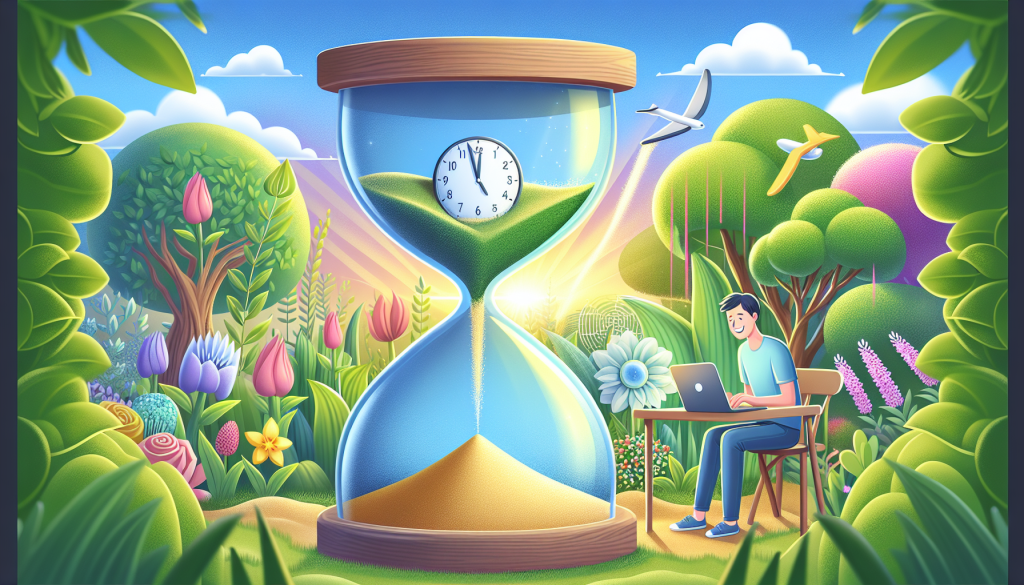Changing procrastination into proactive productivity might sound like turning water into wine, but it’s entirely possible with the right mindset and strategies. Procrastination is a sneaky thief of time, robbing you of opportunities and leaving you with a pile of unfinished tasks. But here’s the good news: you can take back control and transform those wasted hours into meaningful, productive moments. Stick around, and you’ll learn how to flip the script on procrastination and become the proactive powerhouse you’ve always wanted to be.
Key Takeaways
- Procrastination stems from emotional triggers, fear of failure, and perfectionism.
- Shifting to proactive behavior starts with recognizing your control over your actions.
- Breaking tasks into smaller steps and setting time limits can help you stay focused.
- Building habits like prioritizing, disconnecting from distractions, and celebrating progress is key.
Understanding Procrastination
What is procrastination?
Procrastination is the act of delaying or avoiding tasks, even when you know they’re important.
It’s like hitting the snooze button on your responsibilities. You know you’ll have to face them eventually, but for now, you’d rather scroll through social media or binge-watch your favorite show.
It’s not about laziness—it’s often about emotions, fear, or feeling overwhelmed.
Common causes of procrastination
Emotional triggers behind procrastination
Ever notice how you procrastinate more when you’re stressed or anxious? That’s because procrastination is often an emotional coping mechanism.
Instead of tackling a difficult task, your brain seeks comfort in distractions. It’s like choosing a warm blanket over a cold shower—it feels good in the moment but doesn’t solve the problem.
Fear of failure and perfectionism
Sometimes, procrastination is rooted in fear.
You might avoid starting a task because you’re afraid of failing or because you want it to be perfect. Ironically, this fear often leads to rushed, subpar work—or no work at all.
The impact of procrastination on productivity
Procrastination doesn’t just waste time; it drains your energy and motivation.
The longer you put off a task, the more daunting it feels. This creates a vicious cycle of avoidance and stress.
In the end, procrastination can hurt your performance, damage your confidence, and leave you feeling stuck.
Shifting from Procrastination to Proactivity
Recognizing your agency and control
The first step to overcoming procrastination is realizing that you have the power to change.
You’re not a victim of your habits—you’re the architect of your actions.
By
FAQ: Transforming Procrastination Into Proactive Productivity – Your Guide to Taking Action!
What is procrastination, and why do we do it?
Procrastination is the act of delaying or postponing tasks, often due to fear of failure, lack of motivation, or feeling overwhelmed. It’s a coping mechanism that provides short-term relief but can lead to long-term stress and reduced productivity.
How can I identify if I am procrastinating?
Signs of procrastination include avoiding important tasks, prioritizing low-value activities, and frequently telling yourself ‘I’ll do it later.’ Reflect on your habits and notice if you’re delaying tasks unnecessarily.
What are the first steps to overcoming procrastination?
Start by acknowledging the habit and identifying the reasons behind it. Break tasks into smaller, manageable steps, and set clear, achievable goals to create momentum.
How can I stay motivated to be productive?
Find your ‘why’—a strong reason for completing the task. Reward yourself for progress, surround yourself with supportive people, and focus on the benefits of accomplishing your goals.
What are some practical strategies to turn procrastination into productivity?
Use techniques like the Pomodoro method, time-blocking, or prioritizing tasks with the Eisenhower Matrix. Eliminate distractions, and create a dedicated workspace to stay focused.
Can procrastination ever be beneficial?
In some cases, procrastination can lead to creative problem-solving or better decision-making. However, it’s important to differentiate between strategic delay and habitual avoidance of responsibilities.
How does procrastination affect mental health?
Chronic procrastination can increase stress, anxiety, and feelings of guilt. Over time, it may lower self-esteem and impact overall well-being. Addressing procrastination can improve mental clarity and confidence.
What role does self-discipline play in overcoming procrastination?
Self-discipline is crucial for building productive habits. By consistently practicing self-control and following through on commitments, you can gradually reduce procrastination and increase your efficiency.
How can I maintain long-term productivity after overcoming procrastination?
Develop routines, set realistic goals, and regularly review your progress. Stay adaptable, and continue to learn new strategies to keep yourself motivated and productive over time.
Are there tools or apps that can help combat procrastination?
Yes, tools like Trello, Todoist, and Focus@Will can help you organize tasks, set reminders, and stay focused. Experiment with different tools to find what works best for your needs.



